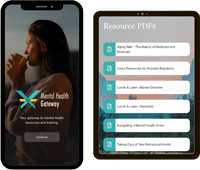Do you ever feel like a fraud, even in areas where you excel? Do you constantly question yourself and your abilities? If you answered yes, you may be experiencing imposter syndrome. Imposter syndrome is a pervasive thought pattern of feeling like you don’t belong or that you’re not worthy of success. It’s a significant problem, and research indicates that 70% of individuals will experience it in some form throughout their lifetime. In this post, we’ll explore what imposter syndrome is, its different types and characteristics, and most importantly – how to overcome it.
Imposter syndrome is a psychological phenomenon that causes an individual to feel like a fraud. No matter how successful they are, they attribute their success to luck or other people’s hard work. It results in an unwarranted sense of insecurity, self-doubt, and sabotaging their success.
Five Types of Imposter Syndrome
There are different types of imposter syndrome and understanding them is crucial to identifying how to overcome them. The five main types are:
The Perfectionist – Perfectionists set extremely high standards for themselves and are consistently self-critical. They are never satisfied with the outcome, regardless of how well they do.
The Expert – Experts feel the need to know every detail about everything and continually be on top of everything. They feel that they are never good enough, even when they are leading in their industry.
The Natural Genius – Genius types tend to set high expectations for themselves without putting in the effort. They feel that they should know things naturally and beat themselves up when they don’t.
The Soloist – These types feel pressure to complete tasks on their own, avoiding help from others. They believe that asking for help makes them appear incompetent or incapable.
The Superperson – Super-people work long hours, multitask, and set impossible goals for themselves. They tend to be workaholics and feel like a failure when they achieve their impossible standards.
Imposter syndrome is characterized by difficulty assessing one’s own competence, attributing success to external factors, struggling with performance and self-doubt, fear of not meeting expectations, overachieving to prove worth, self-sabotage, and setting challenging goals with disappointment in falling short.
How to Move Forward
The first steps to overcoming imposter syndrome are to recognize that you are experiencing it, acknowledge that it’s a real issue, and be willing to take action to beat it. Here are some actionable steps to help you overcome impostor syndrome:
Reflect on Common Imposter Syndrome Triggers
Identify what triggers your impostor syndrome. When do you get anxious or feel like a fraud? When did it start, and what was the cause? Once you identify what triggers it, you can better address the root cause and find a strategy that works best for you.

Adopt a Growth Mindset
A growth mindset is the belief that your abilities can be developed through effort, effective learning strategies, and feedback. Embrace the idea that no one is born knowing everything and that everyone can learn and develop new skills. Practice self-compassion as you work to develop new skills, embracing mistakes, and learning from them.
Get Support
Talk to trusted colleagues, friends, or family members about how you’re feeling. They can provide a much-needed perspective, encourage you, and provide a place for you to express yourself.
Seek Professional Help
Sometimes, getting past imposter syndrome requires more than self-reflection and friendly advice. This is where professional mental health services come into play. Mental health professionals, such as psychologists and counselors, are trained to help you understand your thought patterns, identify negative self-perceptions, and provide strategies to overcome these barriers. They are not there to judge, but to listen, understand, and guide you through your journey of self-discovery and overcoming imposter syndrome. Sessions with a mental health professional can be an enlightening experience, providing a safe space for you to explore and address your feelings of inadequacy. They can assist you in developing a healthier relationship with your achievements and self-worth. Remember, seeking professional help is not a sign of weakness, but a step towards self-empowerment.
You Are Not Alone
Imposter syndrome affects many people, but it doesn’t have to hinder your success. The journey to overcoming impostor syndrome can be hard, but the rewards are worth it. Taking time to reflect, adopting a growth mindset, talking to trusted confidants, and seeking professional help are all steps you can take to overcome imposter syndrome effectively. Remember, you are not alone, and there is no shame in seeking support. You hold the power to overcome imposter syndrome and achieve success.
Promoting mental health awareness can be achieved through programs like Gateway to Hope University’s Empower Trainings. This standout offering enhances community understanding of mental health, equipping individuals with tools to identify and respond to challenges. It’s a valuable resource for combating imposter syndrome and fostering a healthier mindset.
For those who require immediate assistance, the National Suicide Prevention Lifeline (988) and the Crisis Text Line (text HOME to 741741) are available 24/7. Both are free, and confidential and provide immediate support for people in distress, as well as prevention and crisis resources for you or your loved ones.
Always remember, reaching out for help does not signify weakness, but rather strength. It is absolutely fine to not feel okay, and it is more than acceptable to seek assistance. We sincerely hope that these resources act as a stepping stone on your journey towards conquering impostor syndrome and nurturing your mental well-being.
Visit our resources page for more information.



